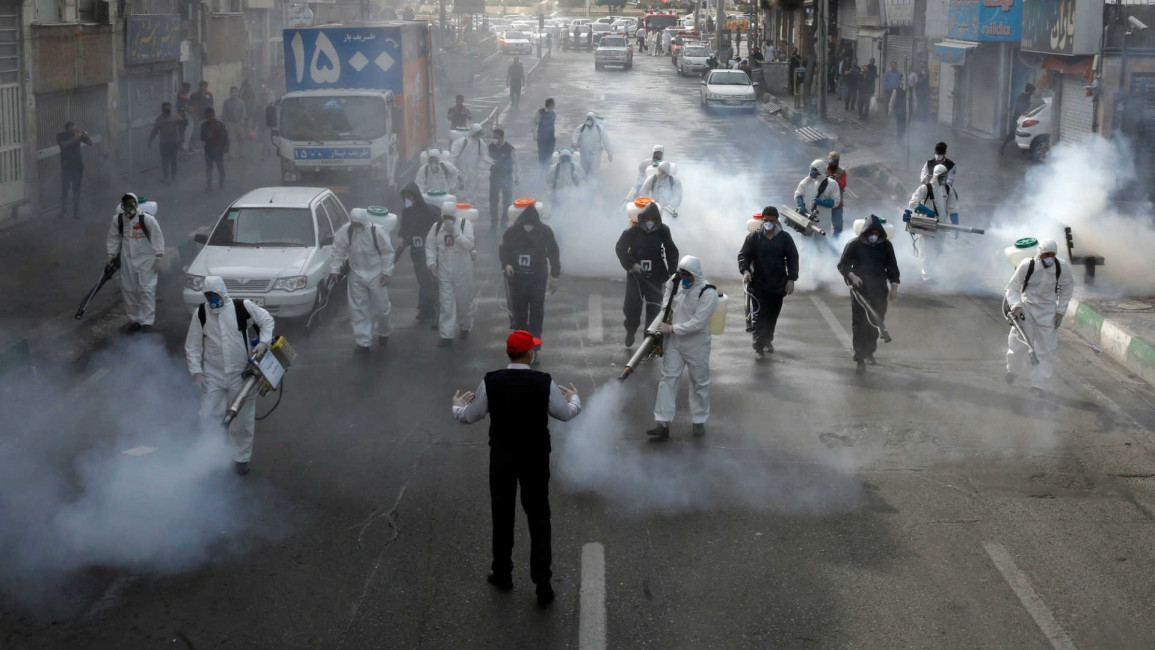The United States is prepared to grant sanctions waivers to certain countries, opening up a way for Iran to access frozen assets and purchase urgently needed medicine and equipment.
The US has faced increased international criticism for its sanctions against Tehran as the Islamic Republic has faced the worst outbreak of coronavirus in the Middle East.
A senior source in Tehran told Middle East Eye that the US has agreed to grant certain countries sanctions waivers, allowing them to release frozen Iranian assets. He did not specify which countries will receive the waivers.
"The efforts of some countries have led to the release of some of the Iranian central bank's money," he told MEE.
"Those countries will receive a sanctions waiver [for releasing Iran's frozen assets], this has been granted and we are following this issue."
"The unfreezing of Iranian central bank money will decrease pressure regarding the lack of foreign exchange for importing medication and life necessities," the source added, speaking on the condition of anonymity.
No official deal has been struck between the US and Iran, he said.
|
UN Secretary General Antonio Guterres has led calls for an "immediate global ceasefire" to refocus on fighting Covid-19 and on Friday appealed for the "waiving of sanctions that can undermine countries' capacity to respond to the pandemic". The appeals seem to have fallen on deaf ears in Washington.
The Trump administration has kept sweeping sanctions on Iran, where 2,517 people have died from coronavirus, and in recent weeks has blacklisted more Iranians including over the clerical regime's heavy involvement in neighboring Iraq.
On Thursday, the United States blacklisted five Iran- and Iraq-based companies and 15 individuals accused of supporting terrorist groups, its third round of sanctions on Iranian targets in the last two weeks.
A State Department spokesperson denied MEE's report.
"Despite the regime's disinformation, the truth is that it already has funds available to it to spend on humanitarian trade that would benefit the Iranian people. Instead, it chooses to spend this money on terrorism and proxy groups. The Iranian people deserve better."
US Secretary of State Mike Pompeo, in a recent interview, said Iran would use any economic relief to pursue nuclear weapons and back Iraqi Shia militias who have increasingly fought a proxy war with US forces.
"You see the way... the regime is treating their people in this time of enormous crisis. You see the way that they continue to spend money," Pompeo told conservative radio host Hugh Hewitt.
Read more: Coronavirus: Travel restrictions, border shutdowns across the Middle East
Many experts agree that Iran, among other countries, made crucial missteps in trying to stem the coronavirus.
But some voiced exasperation that the administration would seek to distract or even topple regimes as a deadly illness infects the globe.
Pompeo quickly points out that the United States has not restricted sales of medicine and other humanitarian goods to Iran - and that the United States has offered, in general terms, to help.
But many Iranians say humanitarian imports have effectively been blocked as few foreign banks are willing to deal with Iran due to US sanctions, leading to shortages of vital supplies such as masks.
 |
Agencies contributed to this report.
Follow us on Facebook, Twitter and Instagram to stay connected



